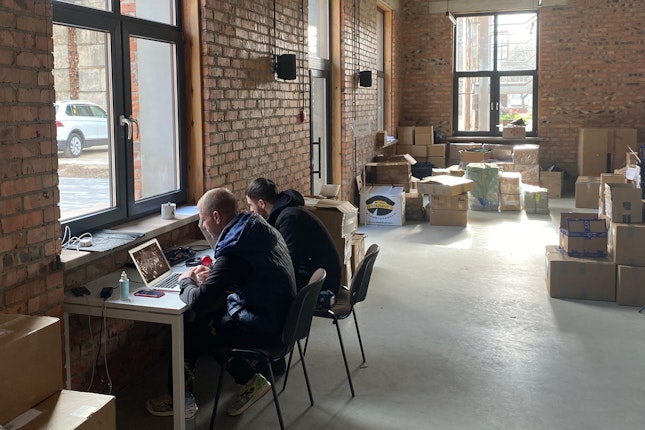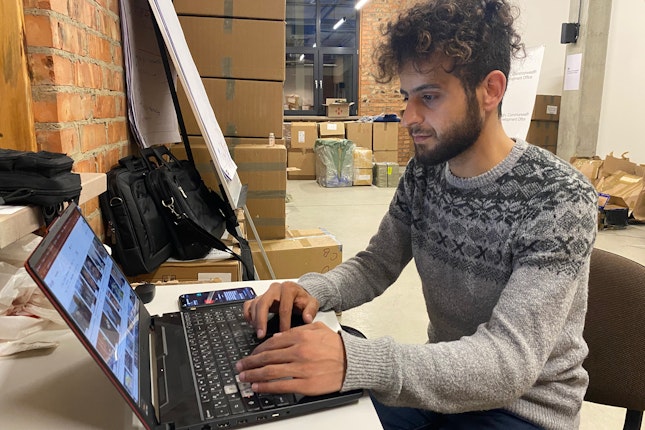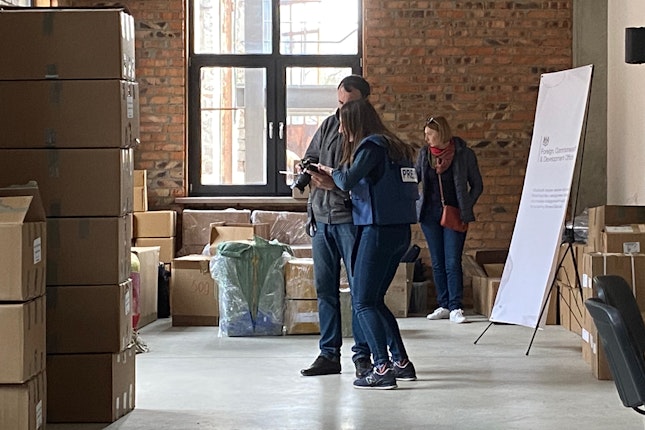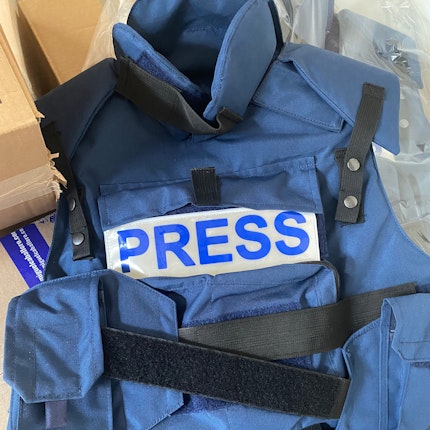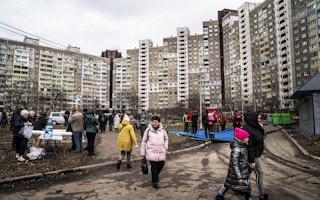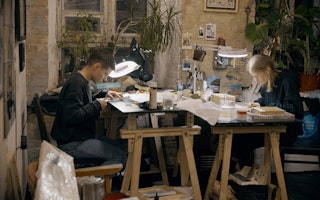Q&A: Telling War Stories Under Fire
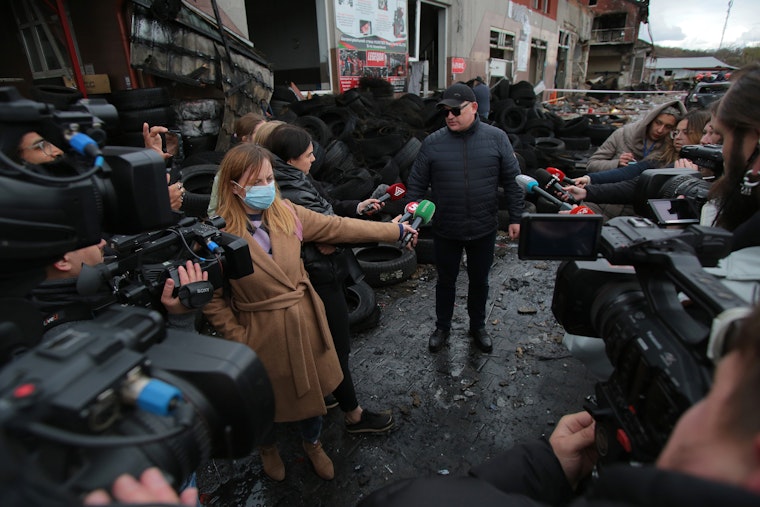
Covering a conflict zone is arduous duty for any journalist. The challenge has been exceptionally tough for Ukraine’s independent media, who have scrambled to file their dispatches from live fire zones, telling the world stories of unimaginable atrocities while combating a flood of disinformation from Russian sources denying the hard truths they uncover—and refusing to even acknowledge Ukraine’s right to exist. Stanislav Liachinskiy, director of the Social Capital Program at the International Renaissance Foundation in Ukraine, shared reflections about the trials and tribulations of the media partners he supports.
How have you managed to do your job since the Russians began their all-out assault on Ukraine in February?
I work in Kyiv. We heard the air sirens in the early morning hours of February 24. I moved outside Kyiv, to central Ukraine. When the Russians retreated, I returned home. Many of my colleagues are still in the western part of the country. It has taken an enormous effort to relocate and keep going, but the pandemic helped prepare us to work remotely, so we have managed to carry on.
How would you describe the challenges facing independent media in Ukraine today?
Our foundation has been supporting independent media in Ukraine since it was established some 30 years ago. The Russian aggression of course is not a new issue this year. My colleagues and I have been working since the Maidan in 2014 on conflict and post-conflict issues and combating disinformation about what Russia has been doing since annexing Crimea.
Even before the invasion this February, we have been working to provide shelter and safe havens for journalists at risk. But we did not imagine that the needs would grow so much—the need for security, relocation, protective equipment, and safe spaces to shine a light on what is going on here. To be honest, when we began speaking with our partners from Lviv about contingency plans, I hoped that 24-7 operations of an office or shelter would not be necessary. But soon after we spoke, this became the sad reality.
It is incredibly challenging to do conflict reporting under conditions of martial law, with restrictions on press freedom. Nevertheless, thousands of displaced Ukrainian journalists continue the work.
What is the shelter for displaced journalists like?
When the bombing began in Kyiv, many journalists fled to the west, to Lviv, where our partners at Lviv Media Forum have set up a place that combines the features of a hostel and a co-working space. You can rest, get protective equipment, have desk space, access counseling for trauma. Roughly one-third of our country has been torn apart by war. Millions of Ukrainians have been displaced, including those we count on to bring us the story. We did not anticipate this level of need. More support is needed.
Independent journalism outlets faced stiff challenges with their business model even before the war. How are they able to stay afloat during these trying times?
Those media outlets that rely on advertising to sustain themselves commercially have suffered most. The ad market has virtually evaporated. However, some have managed to make progress even under those circumstances. Outlets like the Kyiv Independent, which emerged from the Kyiv Post at the end of 2021 and has done an amazing job in covering the war. They had maybe 5,000 followers on Twitter in January. Today they have more than 2 million. Earlier, we helped support their reporting and efforts to become sustainable—encouraging and incentivizing media to diversify revenue streams, become more engaged with their audience for donations. Crowdfunding has become a very important source for them during these times. Donor funding makes a difference, too. Thus, we have worked with colleagues at the Open Society Foundations to support independent media through this time of war. We became one of the most rapid responders, offering emergency support for media within days after the invasion. To date, we have provided assistance to more than 20 newsrooms, ensuring that hundreds of journalists can safely relocate or continue their essential work.
In addition to the bombs and bullets, reporters must also make their way through a constant hail of Russian disinformation. What lessons have you learned about how to combat Putin’s propaganda machine?
Russia’s priority is to change the media environment completely, silence independent voices, control the internet. They believe if you control the information space, you can bend people’s minds to your view—a classic tool of authoritarians. Information warfare is part of their military doctrine. Now in Ukraine, they seek to instill fear and sow discord to advance the goal of winning the war.
It is the responsibility of social media platforms to establish rules and figure out what type of content can be blocked using which criteria. This is hard to accept—I started my career in the fight against censorship. But what Russia and its sympathizers do under the banner of freedom of speech is to encourage and exploit polarization and spread fakes and lies.
You can’t win against propaganda all the time. Debunk one lie, and another arises. You have to monitor and track at all times. We need to establish that truth matters. Facts matter. Quality journalism matters. Debunking of fakes is vitally important, even in—especially in—wartime. In the long run, we have to fight this by developing critical thinking and media literacy. This may take decades, but it is the only way to win the battle against propaganda in the long run.
More from Open Society on Ukraine:
